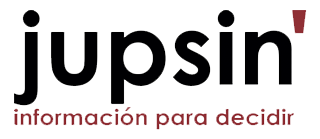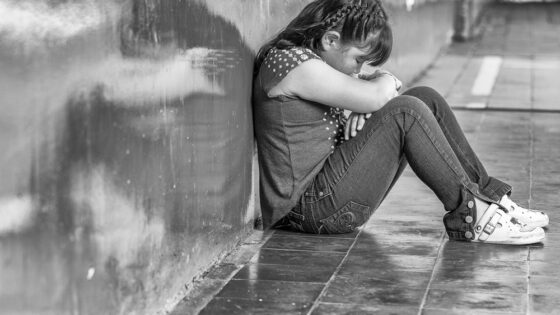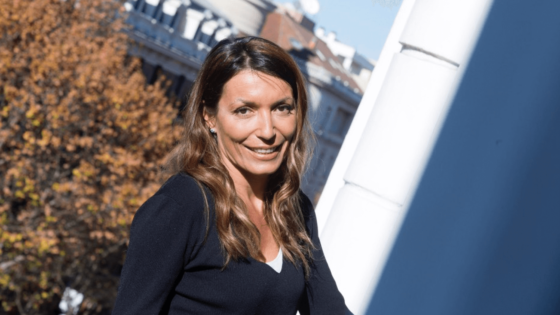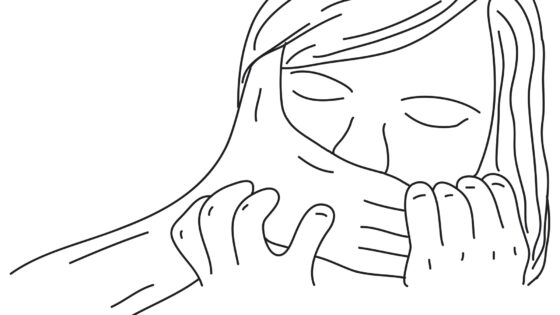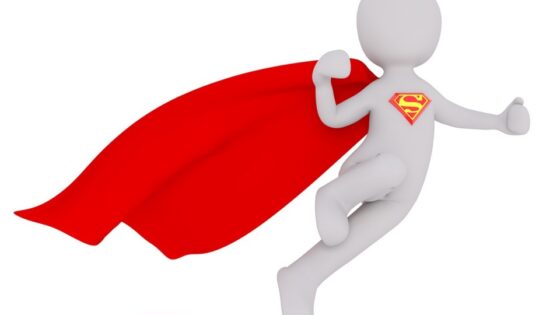Exclusive interview – Marie-France Hirigoyen – Psychiatrist, psychoanalyst and family psychotherapist – A renowned expert in emotional abuse and bullying from France / By Laura Quiun and Jesús Larena.
- In 1998, she published Stalking the Soul: Emotional Abuse and the Erosion of Identity, which soon became an international bestseller. She later went on to write Le Harcèlement Moral au Travail [Bullying in the Workplace], a seminal book which drew attention to this serious problem as an urgent social issue.
- Marie-France Hirigoyen was the inspiration for the creation of the jupsin.com portal three years ago, which aims to raise awareness of the harm and distress caused by emotional abuse in all its forms.
- Workplace bullying
- Marie-France Hirigoyen, la psiquiatra francesa abanderada frente al acoso – (Spanish Edition)
- Marie-France Hirigoyen, la psychiatre française à la tête de la lutte contre le harcèlement – (French Edition)
EXCLUSIVE INTERVIEW | Marie-France HIRIGOYEN – Psychiatrist, psychoanalyst and family psychotherapist
“Workplace bullying acts as a hoover, bringing out earlier abuse from the inner recesses of the mind”
France has paved the way in terms of labour legislation, and Marie-France Hirigoyen has been a standard-bearer for the improvements which have been enshrined in law
Following our initial contact with Marie-France Hirigoyen in 2018 and some scheduling acrobatics to find a date in her packed diary, we were finally able to meet her for this interview with jupsin.com.
Through her words, an image of a great woman emerges, a strong, confident campaigner who has dedicated a significant part of her life to working to raise awareness of emotional abuse and bullying as serious issues.
Twenty years have passed between the photo at the top of the page and the black and white photo below, during which Marie-France Hirigoyen’s extensive work has been compiled into several essential volumes for the fields of occupational and family psychiatry and psychology:
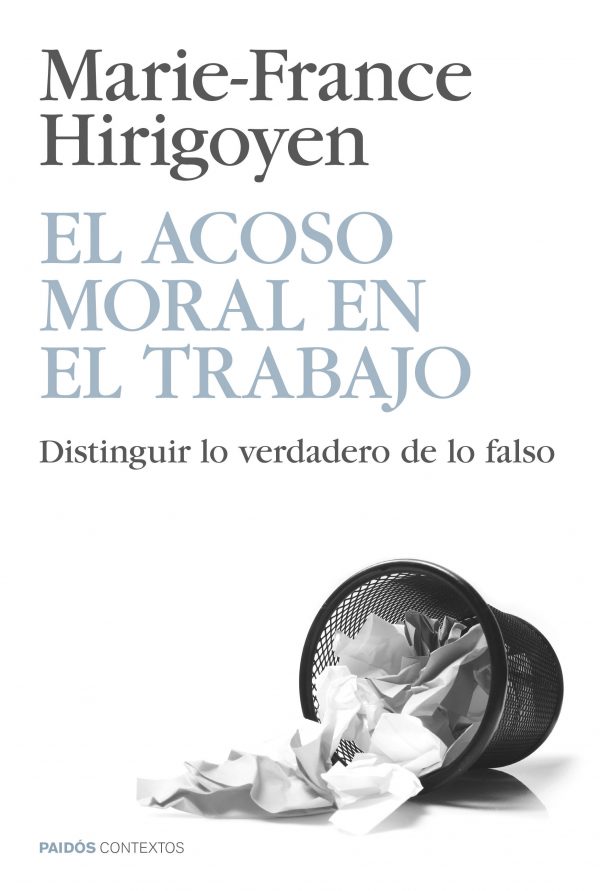 Stalking the Soul. Emotional Abuse and the Erosion of Identity
Stalking the Soul. Emotional Abuse and the Erosion of Identity
- Malaise dans le travail, harcèlement moral. Déméler le vrai du faux
- Femmes sous emprise. Les ressorts de la violence dans le couple
- Abus de faiblesse. Et autres manipulations
- Les nouvelles solitudes
The fight on workplace bullying
In recent decades, France has been a pioneer in terms of incorporating the concept of emotional abuse into labour legislation, serving as an example for other countries. Marie-France Hirigoyen has been a key figure in this process.
Marie-France Hirigoyen’s work inspired us to create jupsin.com, and today we’re lucky to have the privilege of interviewing her. Twenty years on, her teachings are as relevant now as ever.

Two decades ago, Marie-France Hirigoyen launched a ‘crusade’ to draw attention to the serious issue of bullying in different spheres, focusing on the workplace in particular.
Workplace bullying is an insidious form of violence, involving words and gestures which often go unwitnessed, with the aim of attacking and destabilising the victim
Laura Quiun. Is your definition of workplace bullying still valid twenty years on?
Marie-France Hirigoyen. The definition of workplace bullying I published twenty years ago remains valid today. I continue to use the same definition, although it is not the exact definition enshrined in French law. It’s closer to the definition used in Quebec and Belgium.
Workplace bullying is an insidious form of violence, involving words and gestures which often go unwitnessed, with the aim of attacking and destabilising the victim. The difficulty in identifying this type of abuse lies in the fact that, when viewed in isolation, none of the acts in themselves are particularly serious. The abuse becomes severe when there is a succession of microaggressions.
A single instance of abuse is not especially serious in itself, but it becomes so when there are multiple instances. The abuse lies in the repetition of these attacks. Moreover, it is a subjective concept which is linked to an individual’s own perceptions. It’s a complicated issue because of the impact which these attacks have on the victim’s health and dignity.

LQ. So would you say that your thinking is along the same lines as that of Leymann and Einarsen, as you place the emphasis on the frequency and repetitive nature of microaggressions?
In France, case law has demonstrated that attacks can take place over a short period of time and be equally damaging
MFH. In France, case law has demonstrated that attacks can take place over a short period of time and be equally damaging.
Yes, but my definition differs to Leymann in several ways. He considered that at least one aggression should occur per week for a six-month period in order to consider it bullying.
I think that aggressions can be very violent and not necessarily as frequent, but they are equally harmful.
LQ. After your first book was published, you helped to draft a law on workplace bullying. What prompted the French government to legislate to prevent these situations from occurring in the world of work?
 MFH: When I wrote my first book, the concept of workplace bullying was still new. I was the first to speak of ‘emotional abuse’ as the term didn’t exist at that time, and that provided a loudspeaker amplifying a feeling experienced by large numbers of people in their workplaces.
MFH: When I wrote my first book, the concept of workplace bullying was still new. I was the first to speak of ‘emotional abuse’ as the term didn’t exist at that time, and that provided a loudspeaker amplifying a feeling experienced by large numbers of people in their workplaces.
I was consulted as part of the drafting process for the French law. This legal text is important as it focuses solely on consequences for people’s health and dignity and is not limited to a list of abusive acts.
That was the first time that mental health was discussed in the labour code. Until then, the labour code had only mentioned physical consequences and not mental consequences. The law forced companies to implement prevention plans.
In theory, this should be divided into primary prevention, addressing the context which allows abuse to take place, and secondary prevention, supplying tools to allow individuals to better defend themselves. Finally, support should be provided for any employees experiencing bullying.
That was the first time mental health was discussed in labour law. Before, only physical rather than mental consequences were addressed.
The law also helped to raise awareness of the mental suffering experienced by people affected by abuse, as well as other types of distress in the workplace, which are referred to as psychosocial hazards.
We must not forget that workplace bullying is merely another type of hazard to which employees are exposed.
Psychosocial hazards include stress, burnout, external violence (e.g. violence committed by customers) and, of course, emotional abuse, which leads to significant distress at work.
This is why the law obliges large companies (unfortunately it does not cover small companies) to keep a record assessing psychosocial hazards. There was certainly a change in some companies, although many only implemented the prevention plan in order to give a good impression.
LQ. What do you think of the new role of ‘Director of Happiness’?
MFH. I find this solution rather concerning, and I discuss it in my latest book, Les Narcisse. It creates an atmosphere of peaceful coexistence, without resolving the real problems causing people to suffer.
What leads to distress is the pressure increasingly placed on employees to work faster and more intensively. What is lacking is acknowledgement. People do not receive recognition for what they do.
That doesn’t mean opening a massage room or dry cleaning service on site to make their lives easier… That’s not what makes people feel better
The problem is essentially one of a lack of recognition. Most people work in jobs which do not give meaning to their lives. We call them bullshit jobs, jobs which have no purpose.
It’s not about opening a massage room or dry cleaning service on site to make their lives easier… That’s not what makes people feel better.
Often, people are taught how to manage their stress as a way of reducing it, and that leads to more stress. This type of practice artificially conceals the issue.
It is becoming more and more difficult to manage work all over the world, and people are receiving less and less recognition. That has to be addressed.
LQ. So you think it’s a kind of ‘make-up’ to mask the situation?
MFH. That’s right, ‘make-up’ is exactly the right word to describe it.

Marie-France Hirigoyen poses for jupsin.com, the Spanish language portal which says NO to bullying, drawing inspiration from the French psychiatrist and psychotherapist’s work.
LQ. Twenty years after your first book was published, how have perceptions of workplace bullying evolved?
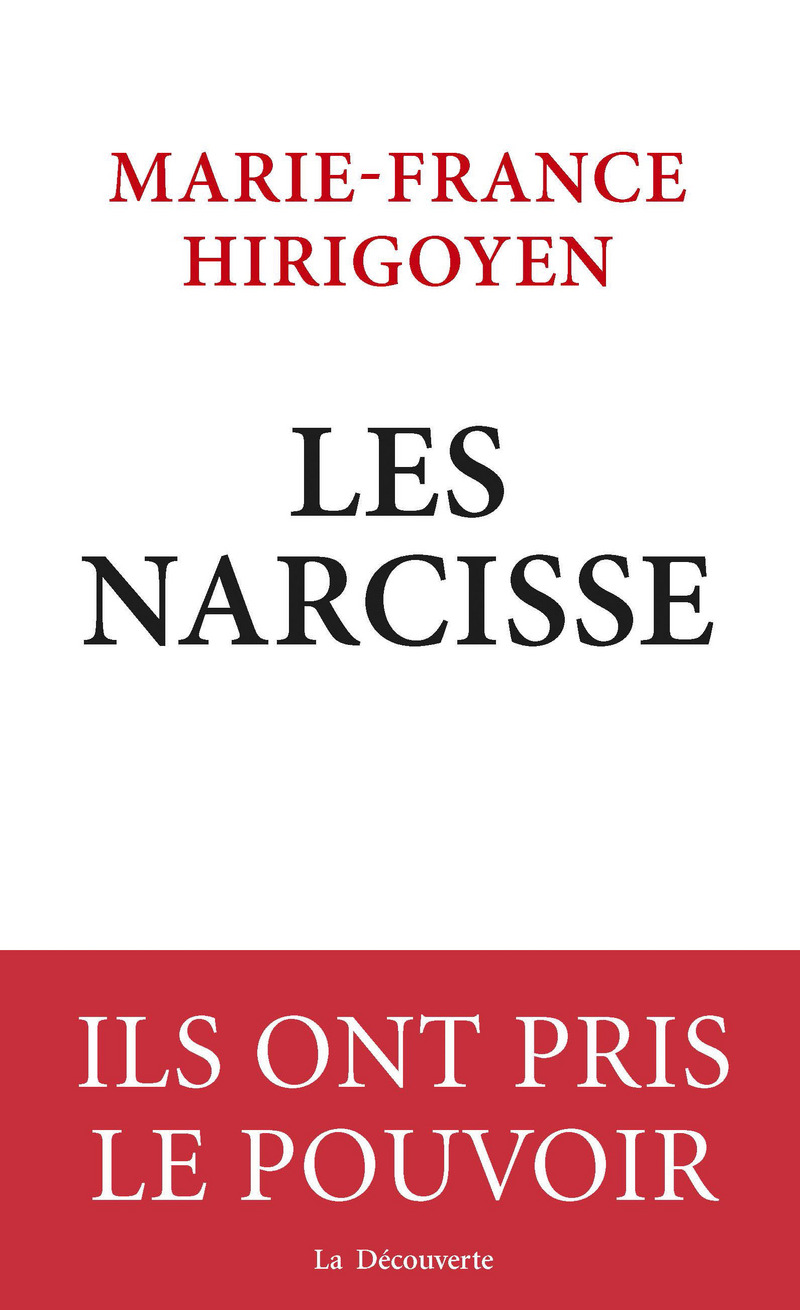 MFH. This area has also borne witness to a twofold trend. It’s impossible to deny the presence of bullying in the workplace because everyone’s seen it, everyone knows of situations like this. People can’t close their eyes to workplace bullying. But then there is also workplace stress, which has increased simultaneously.
MFH. This area has also borne witness to a twofold trend. It’s impossible to deny the presence of bullying in the workplace because everyone’s seen it, everyone knows of situations like this. People can’t close their eyes to workplace bullying. But then there is also workplace stress, which has increased simultaneously.
We have to keep in mind that the focus is on profitability. For example, there’s a lot of distress in hospitals at the current time. I think this is happening in other countries too. The type of management being applied in hospitals is based on profitability, just like in the private sector.
It’s important to be profitable. By definition, hospitals are unprofitable because they take care of sick people, who, if well cared for, will live for a long time, requiring more care for longer. Healthcare is increasingly expensive.
It is undeniable that working conditions are worsening all over the world under the pretext of profitability. In this way, we overlook human concerns. This is happening in hospitals, but it is also occurring in teaching, in all of the places where humanity should be fomented and people should be cared for.
We need to ask ourselves where our priorities lie. How we can restore the meaning of work, how we can cast off this profitability model, this short-termism which priorities profitability at all costs. We need to think about the issue more holistically.
LQ. What would be the best compensation for victims of workplace bullying and distress?
MFH. The best response to a person who has fallen victim to workplace bullying is to acknowledge their distress.
The best response to a person who has fallen victim to workplace bullying is to acknowledge their distress
The problem is that these situations are often hidden. Amicable settlements offering economic compensation are used to silence victims.
In the best cases, the situation is resolved, and in the worst, it isn’t even acknowledged.
Most victims do not want economic compensation, they want acknowledgement that what is happening to them, what has been done to them, is not normal.
It would be even better if they were to receive an apology, but unfortunately that happens very rarely.
LQ. In victimology, we speak of ‘victim precipitation theory’. For example, ‘a woman wearing a mini-skirt can be raped’. But let’s talk about vulnerability, which is completely different…
MFH. We have to be careful when we talk about the victim’s vulnerability. We are all vulnerable because we are all human beings, although not everybody has the same vulnerabilities.
We can all be victims of workplace bullying or sexual abuse. We can all be victims, but when faced with this type of situation, not everybody has the same resilience or the same resources to defend themselves.
That means that people experience distress from two sources: the abuse they are currently suffering and any abuse they have suffered from in the past
If they have been victims of emotional, sexual or other kinds of abuse, either in childhood or adulthood, they are obviously more fragile.
Workplace bullying acts as a hoover, bringing out earlier abuse from the inner recesses of the mind and causing victims to recall previous harassment and insults… That means that people experience distress from two sources: the abuse they are currently suffering and any abuse they have suffered from in the past.
That’s why it’s important for them to receive support from a qualified psychologist who is familiar with the process of psychological trauma and aware of how it operates, because some people do not display a typical response and others do not experience the impact until later.
LQ. There are links between your opinions and those of Racamier on incestuality. Is incestuality, that bond with the guardian, for example, the mother, which is sometimes rather forced in childhood, something which can lead to greater fragility in an individual when they experience workplace bullying?
MFH. Yes, absolutely. Abusive situations in general are the result of an issue with boundaries. We must be able to establish clear boundaries. The ideal way to defend oneself in this type of situation is to nip it in the bud as quickly as possible by saying ‘NO, this behaviour isn’t good for me and I cannot accept it’.
It is important to understand that this type of abusive behaviour can affect anyone: we are all capable of falling victim to it
But that means we have to educate people to think critically, so that they are clear on what they should and should not accept. This is something which can be traced back to childhood. This is why some people, due to the specific setting or their past experiences, are more vulnerable than others.
Although it is important to understand, equally, that this type of abusive behaviour can affect anyone: we are all capable of falling victim to it.
LQ. Just as you note that we can all be victims, you also mention that violence isn’t linked to gender. If we look at domestic violence, it can be perpetrated by a man or a woman. That perspective leads us to think about how we should bring up our sons and daughters.
MFH. That’s right, absolutely.
LQ. What could be a good solution in these cases? What guidelines would you advise parents to follow?
MFH. I don’t believe in programmes. I just think it’s important to teach children to develop their critical thinking.
We can do that simply with a little role play, where we ask them: what do you think about this? How do you think the other person feels if you say nasty things to them? It might seem simple, but it’s very important.
I don’t believe in programmes. I just think it’s important to teach children to develop their critical thinking
In Quebec, there are people who advise on preventing violence and who visit schools to carry out this kind of work. They teach children to make amends for abuse, as well as teaching them how to identify bullying, and I think that’s very important.
LQ. Could this kind of figure help to repair children’s attachment styles?
MFH. Perhaps, although I think individual and family therapy is still important. At the very least, this type of work should be rolled out much more widely.
LQ. Your work prompts us to think about ourselves as individuals and as part of a couple. In the end, fathers and mothers instil a specific set of values in their children. That’s why family is so important. What are the important aspects to help us learn to look critically at ourselves, our partners and our families?
MFH. I address this exact issue in my latest book, Les Narcisse. My argument is that in a narcissistic, individualistic society, we focus largely on ourselves. In education, we value children to the detriment of others.
We protect individual freedom to such an extent that we forget about collective responsibility. We live in a society with other people, in which we must consider reputations, appearances, success. In order to exist, we must be the best.
We are so focused on ourselves that we don’t take other people into account, or consider the distress we may be causing them
In this kind of society, deep down, we are so focused on ourselves that we don’t take other people into account, or consider the distress we may be causing them. We don’t consider the consequences of our behaviour on other people.
That’s how it is. We can mistreat other people, even if it’s not necessarily abuse. Out of sheer indifference, because we’re focused on ourselves. Not out of malice, but because we want to be the best, we want to come first.
That is a dangerous trend in our society.
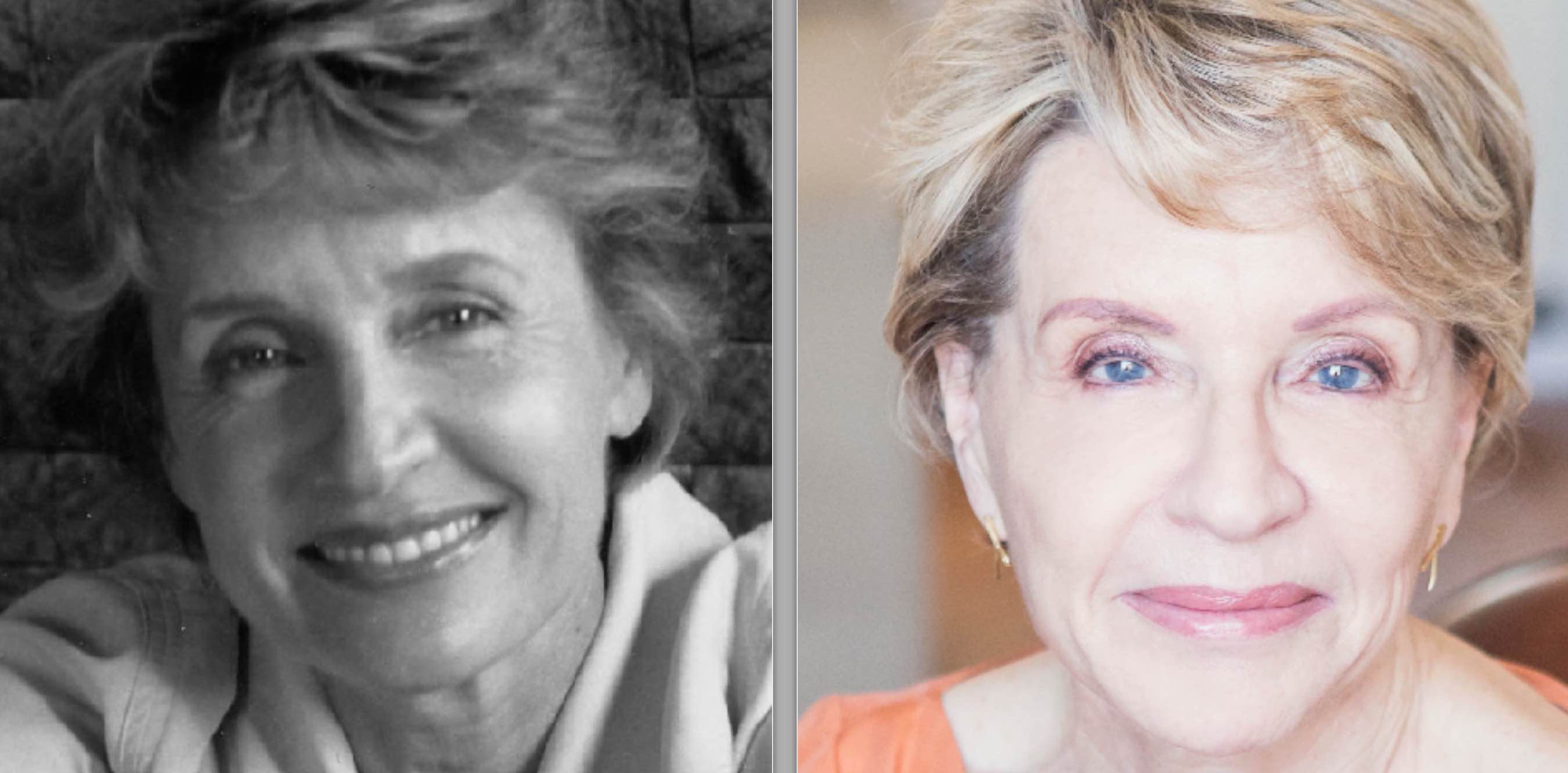
INTERVIEW | Marie-France HIRIGOYEN – (French edition)
LQ. We might take an empathetic perspective on the ‘yellow vests’ and think about the feelings of helplessness and rage caused by their situation. What do you think about this movement, or about #metoo as a coming together of spirits, or about what feminists call sisterhood? In Spain, we saw this with the support received by the victim of the ‘Wolf Pack’ following a rape trial… At what point do we lose sight of what is unjust and become blind to others or even destroy them without meaning to?
MFH. Yes, this is the real issue of our time, and it’s also the focus of my most recent book. I talk about our society, which seeks high performance and prioritises consumerism.
We focus on ourselves and that has boosted the narcissistic side of every one of us, leading the most narcissistic individuals to be selected for the highest ranking positions.
We find narcissistic individuals everywhere, who are willing to do anything to obtain or maintain power. If we go even further, there are now heads of state in some countries who have been democratically elected but who are complete narcissists and govern their countries like autocrats.
We find narcissistic individuals everywhere, who are willing to do anything to obtain or maintain power
On the other hand, there are also more fragile individuals all over the world who are not able to progress as far, who can feel overlooked or even devalued.
This is most likely what is behind the yellow vest movement. On the one hand, we have the financial, intellectual and political elites, whose lives are going better and better. The rich are becoming ever richer, the famous are becoming ever more famous, while on the other hand, we have everyone else, who can start to feel like they are worthless.
The yellow vest movement has seen the latter attempt to make themselves heard. The problem is that among the yellow vests are narcissists, ‘chiefs’, who have spotted an opportunity for their moment of glory by appearing on television. Some have become very radical or have used violence in order to make themselves heard, paving the way for completely unacceptable and very violent movements.
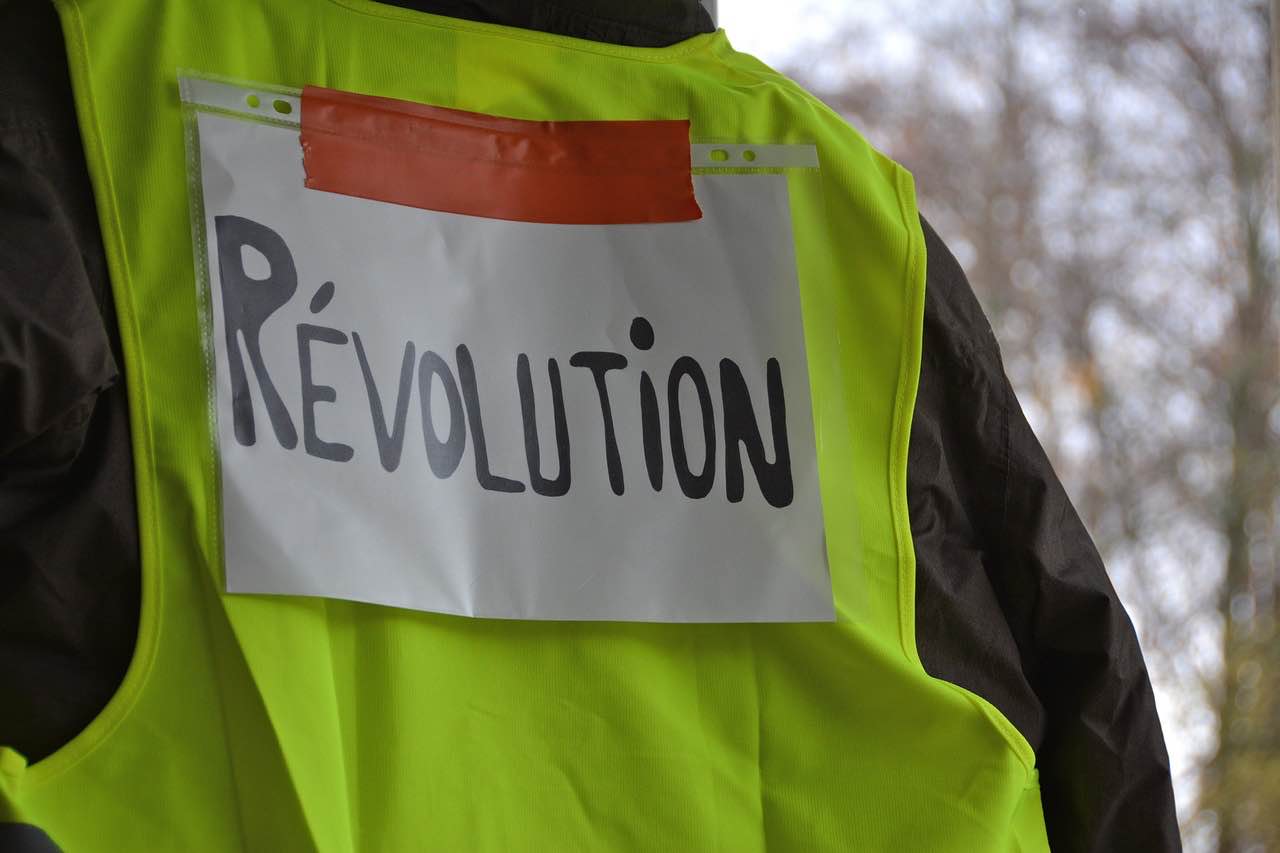
On the one hand, we have the financial, intellectual and political elites, whose lives are going better and better. The rich are becoming ever richer, the famous are becoming ever more famous, while on the other hand, we have everyone else, who can start to feel like they are worthless.
LQ. In relation to that point, it seems paradoxical that part of the immigrant population could have voted for Trump…
MFH: I think that Donald Trump has been able to win over voters by using nice words, observing that disadvantaged people in the United States, the ‘white trash’ and the poor, were fed up with the financial elite and, above all, the intellectual elite which analyses and comments upon the people of the United States.
‘White trash’ people are experiencing very difficult circumstances and Donald Trump’s simplistic, provocative discourse made them think that he would understand them and act in their favour.
In reality, Donald Trump is an extremely narcissistic individual, completely focused on himself and his money
In reality, Donald Trump is an extremely narcissistic individual, completely focused on himself and his money.
He was elected because his vision appealed to a significant proportion of the population and his sexist, racist tendencies reflected the symptoms of an increasingly narcissistic society.
Donald Trump is the embodiment of the American fantasy of earning more and more money.
There are a group of people who are worried about the rise of minority groups, ‘blacks’, ‘Latinos’ and ‘Muslims’ who come from other countries, but also transgender people with a different sexuality.
In our narcissistic society, people are afraid of otherness, of anything that’s different. In many countries, people have set aside universal values, prioritising ethnic origin and protectionism instead, using the other as a scapegoat.
Solidarity is limited to a community of equals who share common interests, as if anyone who is different may be a potential enemy.
This situation is exacerbated by social media, where we are shown information related to what we have already seen, based on opinions we have already expressed. What leads to progress is the ability to listen to other people’s opinions.

In reality, Donald Trump is an extremely narcissistic individual, completely focused on himself and his money.
LQ. Going back to your ‘fight’ over the last twenty years, which inspired us at jupsin.com, what do you think is the best way to address abuse at work, at school and in the home?
People abuse others because they feel empty and they experience a need to crush someone else, to humiliate or insult them
MFH: I think that we are undergoing a period of change. As I have said, this change manifests itself in increasing individualism, which leads to more and more violence.
We’re not talking about collective violence, as overall levels of violence have fallen around the world in spite of all this. However, there is more individual violence and violence which is difficult to address, such as cyber abuse or sexual abuse, which are difficult to report. That’s why I think we need to remain vigilant and talk to other people, making sure we have people we can tell about what’s happening to us.
It is fear which leads to this violence. People abuse others because they feel empty and they experience a need to crush someone else, to humiliate or insult them. We need to change this system by talking about how little is being done to put an end to this situation.
